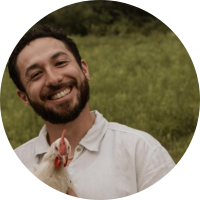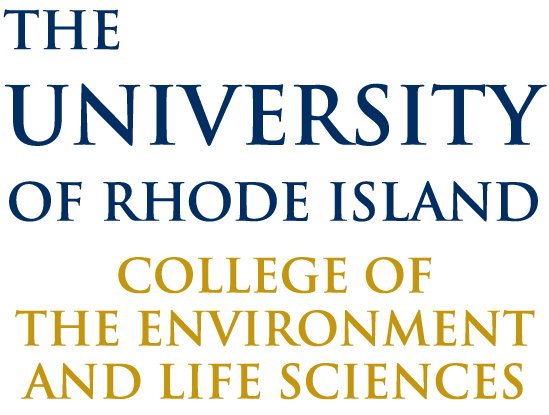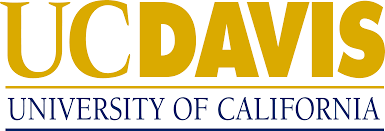University of Rhode Island
Dr. Patrick Baur, PhD, Project Director 
Dr. Patrick Baur, PhD, is an assistant professor of Food Innovation and Policy, Dept. of Fisheries, Animal and Veterinary Sciences who works in the areas of environmental and health policy for agriculture, with a focus on challenges to implementation and achieving desired environmental and social outcomes in practice. Broadly, his research promotes equitable and sustainable balance among human livelihoods, public health, and ecosystems by improving how food is grown. Dr. Baur has significant experience researching the development and implementation of food safety policies and regulations, with a particular focus on unintended social, economic, and environmental impacts resulting from food safety policy.
Dr. Jaime Barrett, PhD
Dr. Jaime Barrett, PhD, is a postdoctoral fellow in the Sustainable Agriculture and Food Systems Program. She received a PhD from the University of Maryland Baltimore County in Geography. Her doctoral work focused on antimicrobial use in the dairy industry and farmer response to the changing political climate associated with increased concern about antimicrobial resistance. As a human geographer, she has worked with various stakeholders in and around the dairy industry to better understand how farmers make animal health management decisions. She also received a master's degree from the University of Delaware in geography. For her master's, her work focused on agricultural best management practices around soil health and water quality where she gained an understanding of a wide range of farmer stakeholders' decisions around the adoption and implementation of conservation practices. Her broad research focus is on agricultural policy and knowledge pathways. She is also interested in identifying alignments and divergences in opinions across stakeholder groups working in or around agriculture to facilitate communication across otherwise isolated groups. Her previous work has indicated some interesting alignments around both conservation and antimicrobial use in agriculture. She plans to continue researching agricultural policy and knowledge pathways and how they influence farmer choices and farm sustainability.
Nicole Richard 
Nicole Richard, Research Associate/Food Safety Specialist, has worked in the Food Safety Education Program at URI for 20 years. She coordinates food safety educational activities for the retail and food manufacturing industries and provides home food preservation workshops to the public. Nicole’s experience includes numerous needs assessment projects which resulted in the development of food safety related resources and programming for numerous target audiences (e.g., educators, consumers, seafood and produce industries, food entrepreneurs). Her lab-based research has primarily focused on the evaluation of biochemical and microbiological quality and safety parameters of seafood. Currently, she is collaborating on research aimed at evaluating the risk of Campylobacter spp. from roosting waterbirds on floating aquaculture cages.
Sejal Lanterman 
Sejal Lanterman has served as an extension educator and program coordinator at the University of Rhode Island for 17 years. Recognized as an FDA lead trainer for the Food Safety Modernization Act Produce Safety Rule, she has been a pivotal force in advancing produce safety education for both commercial growers and the general public through the RI Good Agricultural Practices program. Lanterman's multifaceted role extends to overseeing marketing and communications for Extension, including the mentorship of undergraduate students. Notably, she has taken on the challenge of coordinating the innovative RI Agriculture and Food Systems Fellows Program, showcasing her commitment to fostering agricultural advancements. Lanterman also shares her expertise through co-teaching a diverse array of food preservation courses, covering canning, freezing, dehydrating, and storage techniques.
University of Georgia
Dr. Abhinav Mishra, PhD
Dr. Abhinav Mishra's, PhD, contribution to this project will be to work on predictive models and risk assessment model development using a systems approach. Dr. Mishra's primary research focus is Food Safety and Microbiology, including predictive microbiology and risk assessments. Bacillus cereus, Campylobacter, Clostridium perfringens, Clostridium botulinum, E. coli O157:H7, Listeria monocytogenes, Staph. aureus, Salmonella, and Toxoplasma gondii are among the foodborne pathogens on which he has done and published research. ComBase Premium (https://www.cbpremium.org/) and USDA-ARS Pathogen Modeling Program (https://pmp.errc.ars.usda.gov/) both have several of his predictive models. These models are now being used to assess foodborne pathogen behavior in specific products.
Dr. Govindaraj Dev Kumar, PhD
Dr. Govindaraj Dev Kumar (Govind), PhD, is an assistant professor at the University of Georgia’s- Center for Food Safety. His research focuses on mitigating fruit and vegetable contamination during cultivation and post-harvest handling. Dr. Kumar has performed produce safety research in major produce-producing regions across the United States and has a strong commitment to scientific research and its communication with stakeholders. At the University of Georgia, Dr. Kumar has developed interventions to mitigate the contamination of produce and food contact surfaces by Salmonella enterica, Shiga toxin producing Escherichia coli and Listeria monocytogenes. He is involved with multi-state projects focused on improving the safety of agricultural commodities such as peaches, onions, leafy greens, tomatoes, peppers, and broccoli. His team studies bioaerosols and dust for their potential to serve as vehicles of foodborne pathogenic bacteria and is working towards validating biomarkers to aid in their detection. Dr. Kumar has collaborated with growers in Yuma, Salinas Valley, Delmarva peninsula, and Georgia in assessing pre-harvest contamination risks and validating post-harvest control measures to curb contamination. Dr. Kumar's research has complemented his commitment to communication and outreach. Throughout his career, he has contributed to stakeholder education through talks and presentations at conventions, meetings, and conferences. The International Association of Food Protection provides its members with a global platform to further food safety research and education
University of California Davis
Dr. Alda Pires (PD) 
Dr. Alda Pires is an associate specialist in Cooperative Extension (UCCE) and epidemiologist at the Agricultural Experiment Station (AES) for Urban Agriculture and Food Safety in the Department of Population Health and Reproduction (VM-PHR) at UC Davis. Dr. Pires has extensive experience in livestock production systems, veterinary epidemiology, food safety, and implementation of risk-mitigation and preventive strategies for foodborne pathogens in alternative agricultural systems, diversified farms, and organic systems. Dr. Pires’ research focuses on developing and applying epidemiological tools to monitor food safety hazards, identifying mitigation strategies to reduce the dissemination of foodborne pathogens in pre-harvest crops, and the spread of infectious diseases in agricultural systems (including integrated crop-livestock, diversified, organic farms, small-scale and backyard farms). Dr. Pires works directly with Extension Advisor Specialists, educators, producers, stakeholders, and policy makers on various produce safety issues to minimize the introduction and dissemination of foodborne pathogens within the pre-harvest farm environment, both at statewide and nationwide levels. The overarching objective of her appointment is to advance agricultural sustainability, food safety, and animal health for organic, diversified production systems and urban farming systems. For more information of her current work: https://linktr.ee/pireslab
Dr. Beatriz Martínez-López, DVM, MPVM
Dr. Beatriz Martínez-López, DVM, MPVM is Professor of infectious disease epidemiology at the Department of Medicine & Epidemiology, Veterinary School, UC Davis and Director of the Center for Animal Disease Modeling and Surveillance (CADMS, https://cadms.vetmed.ucdavis.edu) since January 2014, a recognized FAO Reference Center for Veterinary Epidemiology. She has more than 130 publications related to the development and implementation of quantitative methods such as epidemiological modeling, risk assessment, geostatistical methods, or network analysis to unravel complex epidemiological problems at the wild-domestic-human interface. Currently, she is leading the development, implementation, and validation of novel Big Data analytical and visualization tools and their integration into operational, web-based, user-friendly platforms such as the Disease BioPortal (http://bioportal.ucdavis.edu/) to more timely support animal health decisions in livestock and aquaculture industries. Dr. Martínez-López currently teaches mostly graduate courses such as “Applied Epidemiology Problem Solving,” “Concepts and Methods in Infectious Disease Surveillance and Control,” “Health and Ecological Risk Analysis” and “Spatial Epidemiology.” She currently mentors more than 16 graduate and undergraduate students and participates in several training and technology transfer activities with veterinary services or public health departments in many different countries annually.
Kefang Nie
Kefang Nie is a PhD student in the Graduate Group in Epidemiology with Alda F. Pires. Kefang accomplished her veterinary medicine education and then advanced to her Master of Preventive Veterinary Medicine at the University of California, Davis, investigating the risk factors associated with microbial contamination of leafy greens on organic farms. Her current research focuses on screening microbial pathogens in compost from California compost facilities and quantifying the contamination of manure application on produce. As educated to be an epidemiologist, Kefang integrates her veterinary medicine background and aims to further extend the knowledge of mitigating organic soil amendment application risk via One Health approach.
 Yitong Huang
Yitong Huang
Yitong Huang is a PhD student in the Graduate Group in Epidemiology with Alda F. Pires and Beatriz Martinez Lopez. She has a keen interest in disease modeling and risk assessment methodologies. During her Master of Preventive Veterinary Medicine program at UC Davis, she conducted pivotal research on the risk assessment of African Swine Fever's potential introduction into China through prohibited pork and pork products transported by air passengers. She further expanded her expertise by delving into a semi-quantitative risk assessment of chronic wasting disease in California deer, specifically examining hunter pathways. Currently, Yitong is collaborating with Dr. Pires on food safety research. Her project aims to emphasize a quantitative risk assessment framework for organic soil amendments, contributing crucial insights into agricultural practices and food safety protocols.
Pablo Gomez 
The Organic Center
Dr. Amber Sciligo, PhD
Dr. Amber Sciligo, PhD, is the Director of Science Programs and directs projects associated with communicating and conducting research related to organic agriculture. She has extensive experience communicating scientific research to the public, farmers, policymakers and other researchers and has managed several OREI-funded conferences and planning grant projects. The main goal of Dr. Sciligo’s research is to understand how farming practices that promote biodiversity and ecosystem services can be better supported at all farm scales. She hopes that by finding barriers to and opportunities for adoption, policy can more feasibly support farmers to adopt practices that simultaneously protect the land and support the economic health of their farms, while improving their own livelihoods and the livelihoods of their local communities.
Dr. Elias Miller. PhD
Dr. Elias Miller, PhD, is the Science Programs Manager at The Organic Center, where he leads initiatives to advance scientific understanding and promote sustainable practices in agriculture. With a background in environmental studies and biology, Dr. Miller is deeply invested in integrating Justice, Equity, Diversity, and Inclusion (JEDI) principles within science, technology, engineering and mathematics (STEM) fields, enhancing science education, and improving food systems.
Dr. Miller's research interests in STEM education and ecology inform his role of overseeing impactful research programs within the organic agriculture sector. His work at The Organic Center reflects his commitment to advancing both scientific knowledge and practical solutions that benefit the environment and communities.
Outside of his professional endeavors, Dr. Miller manages a multi-species rotational grazing system, including a flock of laying hens and sheep, demonstrating his dedication to sustainable farming practices. Dr. Miller’s unique combination of scientific expertise and personal passion for agriculture underscores his dedication to practices that ensure a sustainable future for farming. His primary role will be to manage and coordinate communication and administrative efforts required to execute all outreach tasks for The Organic Center.




